Patricia Rogetzer finished her doctoral studies in Economics and Social Sciences at Vienna University of Economics and Business (WU) in September 2018, focusing on sustainable supply chains and the circular economy. In October 2018 she joined the chair of Logistics and Supply Chain Management at Technical University of Munich for two years as postdoctoral researcher. Since 1 October 2020, Patricia is Assistant Professor at the IEBIS department of the UT. Her research centers around sustainable supply chain management, dealing with trade-offs regarding economic, environmental and social issues as part of everyday decisions. She studies possibilities to make sustainability an integral part of business models and support companies towards more sustainable decision-making.
Expertise
Social Sciences
- Supply Chain Management
- Materials
- Prices
Earth and Planetary Sciences
- Chain
Economics, Econometrics and Finance
- Price
- Circular Economy
- Stakeholder Engagement
- Costs
Organisations
Publications
2025
2024
2023
Research profiles
Teaching (Coordinator/Teacher/Tutor):
- B-IEM M1: Professional and Academic Development (teacher) - 2020/21
- B-IEM M2: Professional and Academic Development (teacher) - 2020/21
- B-IBA M3: FAIS - Information Systems (teacher) - 2020/21 until 2022/23
- B-IEM M3: Professional and Academic Development (teacher) - 2020/21
- B-IEM M4: Business Game - The Fresh Connection (tutor) - since 2021/22
- B-IEM M5: Professional and Academic Development (teacher) - since 2022/23
- B-IEM/IDE/ME M6: Project Consumerproducts (tutor) - 2020/21
- B-IEM/BIT M7: From Product Design to Online Business (coordinator, teacher) - 2021/22 until 2024/25
- Minor M9: Enterprise Software for the Integration of Administrative Processes (coordinator, teacher) - 2023/24 - 2024/25
- Minor M10: Circularity Management and Technology (teacher) - since 2021/22
Supervision of BSc graduation projects (1st supervisor):
- (finished) B-IEM 2021 W. Hoogenraad https://essay.utwente.nl/86064/
- (finished) B-IEM 2021 D. Snieder https://essay.utwente.nl/86107/
- (finished) B-CS 2021 A. Prieskienis https://essay.utwente.nl/85683/
- (finished) B-BIT 2021 J. van Loevezijn https://essay.utwente.nl/86862/
- (finished) B-BIT 2021 B. Frisa Widiyanto https://essay.utwente.nl/86902/
- (finished) B-BIT 2021 G. Beijk https://essay.utwente.nl/86879/ -- best presentation award (35th TScIT, Track Information Management)
- (finished) B-IEM 2021 C. Cijffers https://essay.utwente.nl/87593/
- (finished) B-IEM 2021 S. de Best https://essay.utwente.nl/87782/
- (finished) B-BIT 2022 B. Verheijen https://essay.utwente.nl/89448/ -- best presentation award (36th TScIT, Track Information Management)
- (finished) B-CS 2022 M.A.A. Qazi https://essay.utwente.nl/89465/
- (finished) B-IEM 2022 M. van Diermen https://essay.utwente.nl/89593/
- (finished) B-IEM 2022 F. Veenman https://essay.utwente.nl/89730/
- (finished) B-IEM 2022 S.A. Prins https://essay.utwente.nl/90813/
- (finished) B-IBA 2022 R. van de Leur https://essay.utwente.nl/91313/
- (finished) B-IBA 2022 A. Coviliac https://essay.utwente.nl/91314/
- (finished) B-GZW 2022 S. Zijlstra https://essay.utwente.nl/91502/
- (finished) B-GZW 2022 D.S. den Riet https://essay.utwente.nl/91501/ -- award for most innovative bachelor thesis in health sciences 2021/22
- (finished) B-IEM 2022 A. Kijk in de Vegte https://essay.utwente.nl/91489/
- (finished) B-BIT 2022 I.M. van Heijnsbergen https://essay.utwente.nl/91783/ -- best presentation award (37th TScIT, Track Information Management)
- (finished) B-BIT 2022 E. Stoica https://essay.utwente.nl/91784/ -- best paper award (37th TScIT)
- (finished) B-IEM 2022 M. Miedema https://essay.utwente.nl/92933/
- (finished) B-IEM 2023 S. Jeurissen https://essay.utwente.nl/94763/
- (finished) B-IEM 2023 E. Groot Koerkamp https://essay.utwente.nl/95002/
- (finished) B-BIT 2023 R. Dijkstra https://essay.utwente.nl/95913/
- (finished) B-BIT 2023 M. Postma https://essay.utwente.nl/96266/
- (finished) B-BIT 2023 J. Hofman https://essay.utwente.nl/95940/
- (finished) B-BIT 2023 V.G. Stoian https://essay.utwente.nl/95853/
- (finished) B-IEM 2023 E.-J. Damhof https://essay.utwente.nl/96929/
- (finished) B-BIT 2023 O.J. Fromm https://essay.utwente.nl/98208/ -- best paper award (40th TScIT, Track Information Management)
- (finished) B-BIT 2023 J.E. Blok https://essay.utwente.nl/98164/ -- best presentation award (40th TScIT, Track Information Management)
- (finished) B-IEM 2023 J.C.J. Naastepad https://essay.utwente.nl/98636/
- (finished) B-IEM 2024 J.H. Visscher https://essay.utwente.nl/100651/
- (finished) B-IEM 2024 Z. Gülcay https://essay.utwente.nl/100512/
- (finished) B-BIT 2024 T. Jong https://essay.utwente.nl/101082/
- (finished) B-BIT 2024 W.M. van Amelsvoort https://essay.utwente.nl/101246/ -- best presentation award (41st TScIT, Track Information Management)
- (finished) B-BIT 2024 V.K. Andreev https://essay.utwente.nl/100973/
- (finished) B-BIT 2024 Y.I. Toshev https://essay.utwente.nl/100961/ -- best presentation award (41st TScIT, Track Information Management)
- (finished) B-BIT 2024 M. Fraňo https://essay.utwente.nl/100867/ -- best paper award (41st TScIT, Track Information Management)
- (finished) B-BIT 2024 Y.M. Fahmy https://essay.utwente.nl/100985/
- (finished) B-CS 2024 E. Stashevskaia https://essay.utwente.nl/100864/
- (finished) B-BIT 2025 A.M. Popa https://essay.utwente.nl/107336/
- (finished) B-BIT 2025 D. Torres Martín https://essay.utwente.nl/107539/
- (finished) B-BIT 2025 A.M. Widojoko https://essay.utwente.nl/107396/
- (finished) B-BIT 2025 B.R. Chakarov https://essay.utwente.nl/107508/
- (finished) B-BIT 2025 M. Idei https://essay.utwente.nl/107463/
- (finished) B-BIT 2025 W.A. Kloosterboer https://essay.utwente.nl/107436/ -- best presentation award (43rd TScIT, Track Information Management)
- (finished) B-IEM 2024/25 L. Osorio Loyola https://essay.utwente.nl/107130/
- (finished) B-BIT 2025/26 K. Babayev -- best presentation award (44th TScIT, Track Information Management)
- (ongoing) B-AT 2024/25 R.W. Rietberg
- (ongoing) B-IEM 2025/6 M. Chahwan
Supervision of BSc graduation projects (2nd supervisor):
- (finished) B-IEM 2021 E. Korkut https://essay.utwente.nl/87972/
- (finished) B-IEM 2021 J. Wieringa https://essay.utwente.nl/88377/
- (finished) B-IEM 2021 D. Roelink https://essay.utwente.nl/87937/
- (finished) B-IEM 2022 R. Koers https://essay.utwente.nl/90478/
- (finished) B-IEM 2022 D. Klein Koerkamp https://essay.utwente.nl/90611/
- (finished) B-IBA 2022 C. Balickis https://essay.utwente.nl/91297/
- (finished) B-IBA 2022 H. Kurzhals https://essay.utwente.nl/90957/
- (finished) B-IEM 2022 M. Zwiers https://essay.utwente.nl/92554/
- (finished) B-IEM 2022 L.J. van der Toorn https://essay.utwente.nl/93079/
- (finished) B-IEM 2022 S.J.B. van der Pol https://essay.utwente.nl/93157/
- (finished) B-IEM 2022 J. Nicklin https://essay.utwente.nl/93136/
- (finished) B-IEM 2022 D. Broekman https://essay.utwente.nl/93205/
- (finished) B-IEM 2022 J. Borren https://essay.utwente.nl/93227/
- (finished) B-IEM 2022 A. Bansal https://essay.utwente.nl/93231/
- (finished) B-IEM 2022 L. Lubbers https://essay.utwente.nl/93673/
- (finished) B-IEM 2023 D. Kok https://essay.utwente.nl/94206/
- (finished) B-IEM 2023 A. Aleksandrov https://essay.utwente.nl/94654/
- (finished) B-IEM 2023 L. van de Zandschulp https://essay.utwente.nl/94494/
- (finished) B-IEM 2023 S.A. Bon https://essay.utwente.nl/95655/
- (finished) B-IEM 2023 O. Bollgönn https://essay.utwente.nl/96179/
- (finished) B-IEM 2023 H. Cho https://essay.utwente.nl/96566/
- (finished) B-IEM 2023 T. Szecsei https://essay.utwente.nl/96983/
- (finished) B-IEM 2023 R. van de Water https://essay.utwente.nl/97599/
- (finished) B-IEM 2023 C. Kerbert https://essay.utwente.nl/97738/
- (finished) B-IEM 2023 M. Ibrahim https://essay.utwente.nl/97817/
- (finished) B-IEM 2024 T.S. Nijhuis https://essay.utwente.nl/98463/
- (finished) B-IBA 2024 C.J.B. van den Heuvel https://essay.utwente.nl/100309/
- (finished) B-IBA 2024 M. Christodoulou https://essay.utwente.nl/100351/
- (finished) B-BIT 2024 N.M.C. Nguyen https://essay.utwente.nl/101001/
- (finished) B-BIT 2024 I. Hriscu https://essay.utwente.nl/99038/
- (finished) B-BIT 2024 M. Tudorache https://essay.utwente.nl/101288/
- (fininshed) B-IEM 2024 D. Schouwenaars https://essay.utwente.nl/102902/
- (finished) B-IBA 2024 E.G. Bălănici https://essay.utwente.nl/104804/
- (finished) B-IEM 2024/25 C. Yildiz https://essay.utwente.nl/106041/
- (finished) B-BIT 2024/25 S. Huang https://essay.utwente.nl/105135/
- (finished) B-BIT 2024/25 G. Falsetti https://essay.utwente.nl/106749/
- (finished) B-IEM 2024/25 M.H. van der Stege https://essay.utwente.nl/105110/
- (finished) B-IEM 2024/25 I.W.Y. Rasea https://essay.utwente.nl/106290/
- (finished) B-IBA 2024/25 B.A.J. Grobben https://essay.utwente.nl/106906/
- (finished) B-IBA 2024/25 B. Maier https://essay.utwente.nl/106798/
- (finished) B-IEM 2024/25 K. Aparicio Pezino https://essay.utwente.nl/107633/
Supervision of MSc graduation projects (1st supervisor):
- (finished) M-BA 2022 E. Albers https://essay.utwente.nl/91966/
- (finished) M-IEM 2023 D.M. Nijkamp https://essay.utwente.nl/79834/
- (finished) M-IEM 2023 C. de Vries https://essay.utwente.nl/97061/
- (finished) M-IEM 2023 N.D. Rusch https://essay.utwente.nl/97565/
- (finished) M-IEM 2023 J.-H. Kloppenberg https://essay.utwente.nl/98037/
- (finished) M-IEM 2024 C.J. Cijffers https://essay.utwente.nl/102255/
- (finished) M-BA 2023 A. Lamtink https://essay.utwente.nl/103416/
- (finished) M-BIT 2024 I.M. van Heijnsbergen https://essay.utwente.nl/103770/
- (finished) M-BA 2025 N. Schreuder https://essay.utwente.nl/104820/
- (finished) M-BA 2025 V.G. Stoian https://essay.utwente.nl/106589/
- (finished) M-IEM 2025 G.J.L. de Groot https://essay.utwente.nl/106112/
- (finished) M-IEM 2025 A.J.M. Lohschelder https://essay.utwente.nl/106965/
- (finished) M-BIT 2025 J. Hofman https://essay.utwente.nl/107551/
- (finished) M-BIT 2025 V.A. Seinstra https://essay.utwente.nl/107644/
- (finished) M-BIT 2025 B. Gülbey https://essay.utwente.nl/107818/
- (finished) M-BA 2023 L.A. Hospers https://essay.utwente.nl/107842/
Supervision of MSc graduation projects (2nd supervisor):
- (finished) M-IEM 2021 G.R.B. Holsbrink https://essay.utwente.nl/85473/ -- BMS Graduation Award 2021
- (finished) M-BA 2021 S. Hakkers https://essay.utwente.nl/88224/
- (finished) M-IEM 2022 J. Emmen https://essay.utwente.nl/89323/
- (finished) M-IEM 2022 R. van Doremalen https://essay.utwente.nl/89581/
- (finished) M-IEM 2022 M. Gankema https://essay.utwente.nl/89753/
- (finished) M-IEM 2022 T.T.M. Lansink https://essay.utwente.nl/91622/
- (finished) M-IEM 2022 Y. Bosch https://essay.utwente.nl/92044/
- (finished) M-BA 2022 V. Janssen https://essay.utwente.nl/93864/
- (finished) M-IEM 2023 J.B. Mourik https://essay.utwente.nl/94563/ -- winner (first place) of Bekader (IEM & IBA alumni association) Thesis Award for IEM
- (finished) M-IEM 2023 M.B. Kloosterman https://essay.utwente.nl/94819/
- (finished) M-IEM 2023 L.R. van Beek https://essay.utwente.nl/94846/
- (finished) M-BA 2023 L.H.P. Schepens https://essay.utwente.nl/94892/
- (finished) M-IEM 2023 K. van Ekeris https://essay.utwente.nl/96172/
- (finished) M-IEM 2023 W. Jansen https://essay.utwente.nl/97793/
- (finished) M-IEM 2024 R. Hopman https://essay.utwente.nl/99080/
- (finished) M-IEM 2024 N. Galama https://essay.utwente.nl/102950/
- (finished) M-IEM 2024 S.J.B. van der Pol https://essay.utwente.nl/103614/
- (finished) M-BA 2025 S. Lagrand https://essay.utwente.nl/105011/
- (finished) M-BIT 2025 H.S. Vreeman https://essay.utwente.nl/106974/
- (finished) M-BA 2025 D. Janotta https://essay.utwente.nl/106749/
- (finished) M-BIT 2025 W.J. de Lange https://essay.utwente.nl/107167/
- (finished) M-BIT 2025 N. Koerselman https://essay.utwente.nl/107544/
- (finished) M-BIT 2025 E. Cañavate Quero https://essay.utwente.nl/107607/
- (finished) M-BA/HS 2025 M.B. Devrim https://purl.utwente.nl/essays/107864
- (finished) M-IEM 2025 S.A. Bon https://essay.utwente.nl/107593/
- (finished) M-BIT 2025 H. Mutharasu https://essay.utwente.nl/107906/
- (ongoing) M-BIT 2025 A. Tsankov https://essay.utwente.nl/108135/
Supervision Master BIT Research Topics:
- 2023/24 I.M. van Heijnsbergen
- 2024/25 V.A. Seinstra
- 2024/25 J. Hofman
- 2024/25 B. Gülbay
- 2024/25 H.S. Vreeman
- 2024/25 E. Cañavate Quero
- 2024/25 W.J. de Lange
- 2024/25 N. Koerselman
- 2024/25 A. Tsankov
- 2024/25 H. Mutharasu
PhD Student Supervision:
- Aidana Tleuken "Societal Engagement and Governance in Hubs for Circularity (H4C)" related to the IS2H4C project, started 04-2024
- Robbert R. Bosch "Multi-Objective Strategic Level Scheduling for Urban Multi-Project Infrastructure Renovation Projects" related to the LogiQuay project, started 01-2023
- Dennis A. Vegter "Performance measurement in circular supply chain management", graduated 09-2024 https://doi.org/10.3990/1.9789464735604
Committee work:
- Reviewer (since 1-11-2021) & member (since 1-6-2022) of the Ethical Committee BMS/HSS domain (for IEBIS): https://www.utwente.nl/en/bms/research/ethics-domainHSS/
- General member (since 1-4-2023) of the Examination Board EEMCS, subcommittee EB-BIT: https://www.utwente.nl/en/eemcs/education/examination-board/subcommittees/EB-BIT/
Affiliated study programs
Courses academic year 2025/2026
Courses in the current academic year are added at the moment they are finalised in the Osiris system. Therefore it is possible that the list is not yet complete for the whole academic year.
- 192399979 - Final Project BIT
- 194100040 - Master Thesis BA
- 194100060 - Master Thesis IE&M
- 201300058 - Research Topics BIT
- 201300059 - Internship BIT
- 201500101 - Master Thesis Research Proposal
- 201500102 - Master Thesis Research Project
- 201500371 - Capita Selecta BIT
- 202000421 - Product Design to Online Business Theory
- 202000423 - Professional and Academic Development M7
- 202000434 - BSc Research Assignment
- 202001084 - ERP, Apps & ICT Architecture (for BIT)
- 202001486 - Capita Selecta EngD (tailored assignm.)
- 202001522 - Capita Selecta EngD (in-company tr.)
- 202200096 - Circular Economy
- 202400101 - Bachelor Thesis IBA
- 202500395 - ERP, Apps & ICT Architecture (for BIT)
Courses academic year 2024/2025
- 192399979 - Final Project BIT
- 194100040 - Master Thesis BA
- 194100060 - Master Thesis IE&M
- 201300058 - Research Topics BIT
- 201300059 - Internship BIT
- 201500101 - Master Thesis Research Proposal
- 201500102 - Master Thesis Research Project
- 201500371 - Capita Selecta BIT
- 202000421 - Product Design to Online Business Theory
- 202000422 - Product Design to Online Business Proj.
- 202000423 - Professional and Academic Development M7
- 202000434 - BSc Research Assignment
- 202000576 - Research Proposal Bachelor Thesis IBA
- 202000579 - Bachelor Thesis IBA
- 202000670 - Bachelor Assignment
- 202001084 - ERP, Apps & ICT Architecture (for BIT)
- 202001486 - Capita Selecta EngD (tailored assignm.)
- 202001522 - Capita Selecta EngD (in-company tr.)
- 202200096 - Circular Economy
- 202300002 - Enterprise Software for the Integration
- 202300363 - Internship BIT - CS
- 202400101 - Bachelor Thesis IBA
- 202400106 - Bachelor Thesis IBA, DD with Múnster
- 2023/24: From Industrial Symbiosis to Hubs for Circularity (IS2H4C)
- 2022/23:
- Circular Economy Platform Twente (CEP): The primary goal of the CEP Twente is to accelerate the transition towards a sustainable circular economy by fostering interdisciplinary research, education, and knowledge exchange. with interdisciplinary team: D. Yazan (IEBIS), Y. Yu (IEBIS), D. Guericke (IEBIS), A. Trivella (IEBIS), A. Abhishta (IEBIS), M. Machado (IEBIS), M. Sharma (IEBIS), L. Alvino (ETM), C. Acar (ET), M. van den Berg (ET), M. Koeva (ITC) and Efia Boakye Addo, Dan Hartenberg, Amalia Bălan, T. Szecsei - from Green Hub Twente.
- Logiquay: Adaptive Multi-Actor Multi-Modal Closed-Loop Planning and Logistics for Renewal and Renovation of Urban Bridges and Quay Walls (NWA.1431.20.005)
- EasyGrader: funded by the WSV innovation projects BMS 2022/23 with interdisciplinary team: D. Braun (IEBIS), BMS LAB
- 2021/22:
- Designing a minor on Enterprise software for the integration of administrative processes: This project aims at developing a multidisciplinary challenge-based learning (CBL) minor module on enterprise software for the integration in administrative processes and is funded by the WSV innovation projects BMS 2021/22.with interdisciplinary team: M. Iacob (IEBIS), M. Ehrenhard (ETM), M. de Visser (ETM), M. Schutten (IEBIS), R. Torenvlied (PA), J. Gosselt (COM)
- 2020/21:
- Serious Gaming for Circular Economy Transition (SG4CET): The project aims at implementing an online game together to be run in the newly developed Minor Module of Sustainable Circular Economy (starting November 2021) and is funded by the WSV innovation projects BMS 2020/21.with interdisciplinary team: D. Yazan (IEBIS), L. Fraccascia (IEBIS), Y. Yu (IEBIS)
Current projects
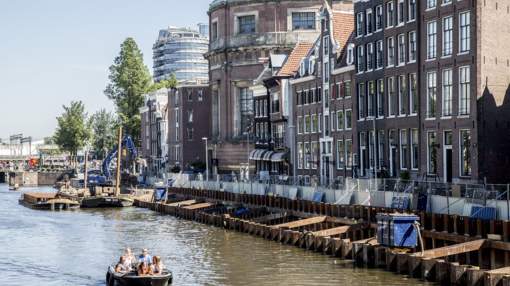
Logiquay
Adaptive Multi-Actor Multi-Modal Closed-Loop Planning and Logistics for Renewal and Renovation of Urban Bridges and Quay Walls
Many bridges and quay walls in historic city centres, such as in Amsterdam, show signs of overdue maintenance and have reached the end of their technical or functional life. Renovation or renewal is required urgently. This is a large and complex task, not only because of its size, but also because of the impact on the environment and the city. The Loqiquay project aims at the development of closed-loop logistics methods and multi-project control solutions to accelerate speed of renovations, increase control, and improving sustainability and circularity including reuse of secondary materials and reduction of transport movements and emissions.
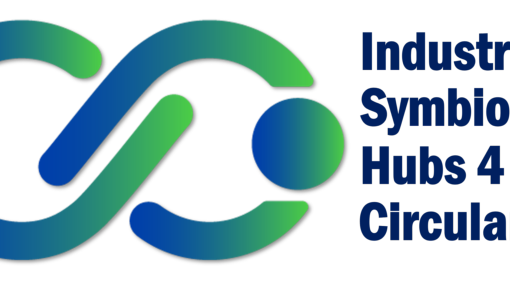
Sustainable Circular Economy Transition: From Industrial Symbiosis to Hubs for Circularity (IS2H4C)
IS2H4C, a 4-year major collaborative project funded by the European Commission with a total budget of 23.5 million euros, aims to transform industrial zones into hubs for circularity (H4C) for near zero emission regions. The project, aligning with the European Green Deal and the Fit-for-55 package, is set to become the largest EU project run at UT, involving 35 partners from nine countries.

Circular Economy Platform Twente (CEP)
This project aims to establish the Circular Economy Platform Twente (CEP Twente) as a collaborative initiative between the academicians and students of the five faculties of the University of Twente (UT) including Green Hub Twente within 2023. The primary goal of the CEP Twente is to accelerate the transition towards a sustainable circular economy by fostering interdisciplinary research, education, and knowledge exchange.
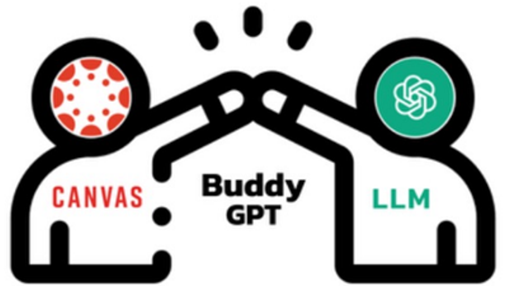
BuddyGPT
Adapting Large Language Models for a Study Buddy System at UT
This project aims at strategic integration of AI-driven conversational agents, such as ChatGPT, into learning environments like Canvas. The focus is on enhancing both students' and educators' ability to access reliable, personalized information while aligning with learning objectives and course-specific content. By adopting a buddy system approach, proactively, the system would reach out to students with reminders about upcoming deadlines or key tasks, encouraging better time management and engagement. By linking AI to course materials and incorporating learning theories for optimal information transmission, the project seeks to prevent over-reliance on AI for quick answers, instead promoting self-regulation and deep learning, foster collaboration, reflection and critical thinking. Additionally, it aims to equip both educators and students with AI literacy to ensure ethical and responsible AI use.
Finished projects

EasyGrader
In order to improve the objectivity, reliability, and efficiency of the assessment of open exam questions, IEBIS and the BMSLAB together developed the tool EasyGrader as part of a Comenius research project. EasyGrader is a grading assistance tool that is directly connected to Remindo and can cluster answers to open questions, based on their similarity and a list of keywords. We want to train a model to automatically classify students’ answers to open exam questions. Finally, we want to integrate this model into an enhanced version of EasyGrader, evaluate it with teachers, and provide the final version to teachers, in order to support them in their grading process.
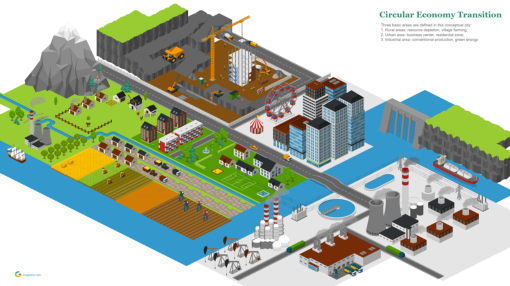
Serious Gaming for Circular Economy Transition (SG4CET)
The project aims at implementing an online game together with BMSLab to be run in the newly developed Minor Module of Sustainable Circular Economy (starting November 2021) and is funded by the WSV fund 2021.

Designing a minor on Enterprise software for the integration of administrative processes
This project aims at developing a multidisciplinary challenge-based learning (CBL) minor module on enterprise software for the integration in administrative processes and is funded by the WSV fund 2022.
News on utwente.nl
- Sustainable Circular Economy Transition: from Industrial Symbiosis to Hubs for Circularity (IS2H4C) project: Transitioning industrial zones into hubs for circularity (utwente.nl)
- Bekader IEM Master Thesis Award 2023 (CHOIR News): Best IEM master thesis award 2023 for Josien Mourik (utwente.nl)
- BMS - UTQ Ceremony (December 2023) BMS - UTQ Ceremony | Service Portal | University of Twente (utwente.nl)
- Circular Economy Platform Twente (CEP) Circular Economy Platform Twente (CEP TWENTE) receives UT Climate Centre Funds (utwente.nl)
- Circular Economy Platform Twente (CEP) receives Climate Centre award: Climate Centre awards nine climate-related projects €190.000 in seed funding (utwente.nl)
- Corporate Video of the High Tech Business Entrepreneurship department: Hightech Business and Entrepreneurship on Vimeo
- Graduation Award 2021 (CHOIR News): The BMS Graduation Award 2021 goes to … Gelbrich Holsbrink! (utwente.nl)
- Graduation Award 2021 (IEBIS News): The BMS Graduation Award 2021 goes to … Gelbrich Holsbrink! (utwente.nl)
- BMS Lab about our new CET minor: Circular economy transition minor - Interdisciplinary project - BMS LAB — Where Technology Meets Life (utwente.nl)
- Graduation Gelbrich Holsbrink: IEM Master student graduated (utwente.nl)
- Talk at the IEBIS seminar: Archive | 16 December 2020 | BMS - IEBIS (utwente.nl)
Address
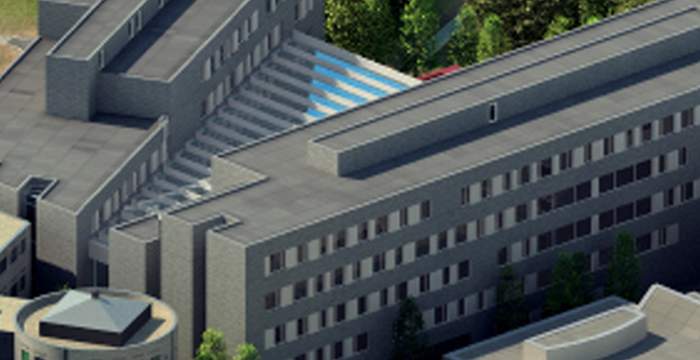
University of Twente
Ravelijn (building no. 10), room 3422
Hallenweg 17
7522 NH Enschede
Netherlands
University of Twente
Ravelijn 3422
P.O. Box 217
7500 AE Enschede
Netherlands